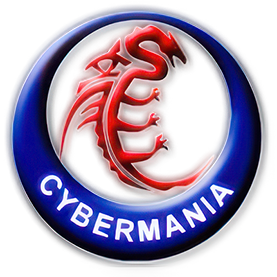
UFS Explorer Professional Recovery is an expert-level software instrument created to address highly complicated data recovery challenges.
Along with linear electronic media, like hard disks, thumb drives and memory cards, the program handles RAID-based storages with various layouts, including standard, nested, custom and specific configurations – Drobo BeyondRAID, Synology Hybrid RAID, Btrfs-RAID and ZFS RAID-Z. The integrated decryption algorithms make it possible to open volumes encrypted with BitLocker, LUKS, FileVault 2 and APFS without having to unlock them in the operating system. The software also supports numerous file systems used in Windows, Linux, macOS and BSD, offering direct access to their content, well as a variety of storage technologies, among which are Windows Dynamic Disks, Storage Spaces and deduplication, Apple Software RAID, Core Storage and Time Machine, Linux mdadm and LVM with Thin Provisioning. Furthermore, the application allows working with various virtualization systems, like VMware, Hyper-V, VirtualBox, QEMU, XEN and many formats of disk images.
Moreover, UFS Explorer Professional Recovery features extended possibilities for efficient processing of storage devices, especially ones that demonstrate certain hardware problems. The software offers an advanced procedure for opening storages with parameters as to their usage and an opportunity to save a sparse image file with the processed data. Operations with drives connected to DeepSpar Disk Imager can be performed via LAN and controlled by the software without the need for any third-party solutions. A full or partial image of a disk can also be created with the help of an embedded imaging function with various settings for disk reading and omission of damaged blocks. A map with defective areas can be generated during imaging or through the conversion of used/free file system space to mask and employed during the recovery procedure. The raw content of files and storages can be analyzed and edited directly in the software with a broad set of supplementary tools.
Work with various storage technologies
This professional application provides effective means for processing a variety of storage technologies implemented in modern devices. Among them are Windows Dynamic Disks and Storage Spaces, Apple Software RAID, Core Storage and Time Machine, Linux mdadm, LVM with Thin Provisioning, Btrfs-RAID, ZFS RAID-Z, Drobo’s BeyondRAID, Synology’s Hybrid RAID and other specific configurations. The software also supports the technology of Microsoft data deduplication (Windows Server), enabling users to recover data lost from deduplicated NTFS and ReFS volumes.
Support of a wide range of file systems
UFS Explorer Professional Recovery offers immediate access to the available content and allows restoring lost information from a comprehensive set of file systems applied in Windows (FAT/FAT32/exFAT, NTFS and ReFS/ReFS3), macOS (HFS+, APFS), Linux (Ext2, Ext3, Ext4, SGI XFS, JFS, ReiserFS, Sun ZFS, Btrfs, F2FS), BSD/Solaris (ZFS) and VMware (VMFS, VMFS6), along with the possibility to read volumes with the legacy Apple HFS and IBM/Microsoft HPFS file systems, Novell NetWare (NWFS) and Novell Storage Services (NWFS, NSS, NSS 64) file systems.
Data recovery from RAID
The utility offers automatic assembly for various RAID setups, including non-redundant RAID level 0 and JBOD, 1 and 1E mirrors, levels 3 and 4 with dedicated and 5 and 6 with distributed parity as well as nested RAID layouts. A special syntax makes it possible to define custom RAID configurations with different data distribution algorithms. The program is also capable of performing adaptive reconstruction of a defective RAID using parity (for RAID 5 and RAID 6) or a copy of data (for RAID 1). A RAID set can be also reconstructed using disk images with the imitation of bad sectors with the help of bad sector maps.
Decryption of encrypted storges
The software supports most common disk encryption technologies, including LUKS, BitLocker, FileVault 2, APFS encryption and eCryptFS, providing the possibility of access to the intact data and recovery of lost files from encrypted volumes in cases when the encryption key is known to the user. There is no need to run the operating system and unlock the drive – the password/key can be inserted directly in the software and it will use it to decipher the storage for further operations.
What’s new in version 10.9:
Microsoft Storage Spaces:
– Added experimental support for ‘fixup’ of improperly unmounted volumes using the Transaction Log (via the ‘RAID’->’Microsoft Storage Space volumes’ tool);
– Fixed issue parsing volume metadata (record version 10);
– Fixed a bug with automatic updates to the ‘dual parity’ volumes when additional (missing) components are added;
Added support of the Synology RAID-F1 pattern (both algorithm and support in RAID builder);
In RAID builder:
– Added support of pattern ratations for ‘dedicated parity’ patterns of RAID5/RAID6;
– Added setting for rotating/dedicated Q-stripe for RAID6 and support of pattern indication for dedicated Q rotation type;
Fixed recognition of RAID50/60 configurations with DDF2 RAID metadata on some Adaptec RAID boards;
MDADM RAID metadata format:
– Added automatic recognition of dedicated parity configurations (‘parity frst’/’parity last’ rotations) for both RAID5 and RAID6;
– Also added recognition and full support of RAID6 with RAID5-style rotation and dedicated parity (like ‘left-symmetric-6’, ‘parity-first-6’ etc. chemas);
Ext3/Ext4 scan:
– Added support of journal checksum feature (for better deleted data recovery);
– Enabled EXT4 B-tree search for attempted recovery of big deleted files;
Fixed bug with data access errors on ‘trasformed’ (decrypted, byte-swapped etc.) in certain scanirios with transformation block size over one sector;
Fixed bug with creation of image files in VHDX format;
Linux software version in save/open dialogs now shows connected media from /media/USER_NAME subfolders;
ReFS3 file system scan:
– Fixed bug with indexing procedure (incorrect location of indexed files);
– Added support of ‘hard-links’ in ReFS scan result.
Operating System: Windows ® 7 with Service Pack 1 and later
Thanks to flash13 sharing
(Installer with key) x86 x64
